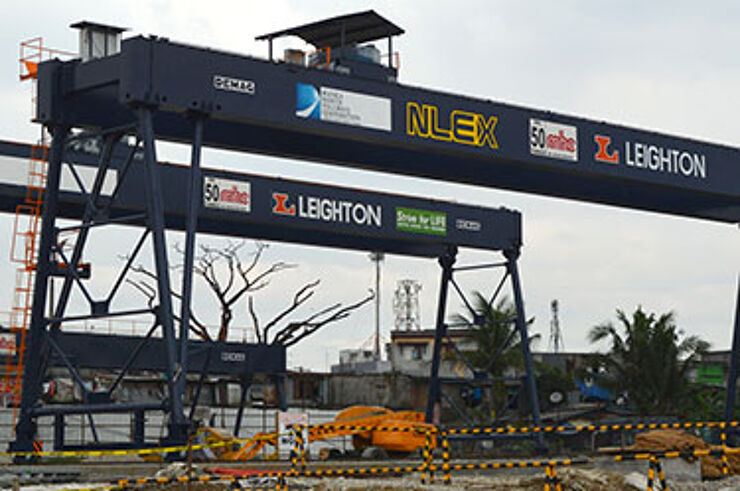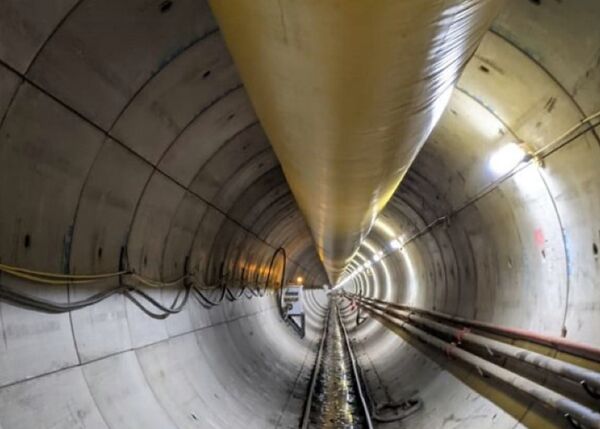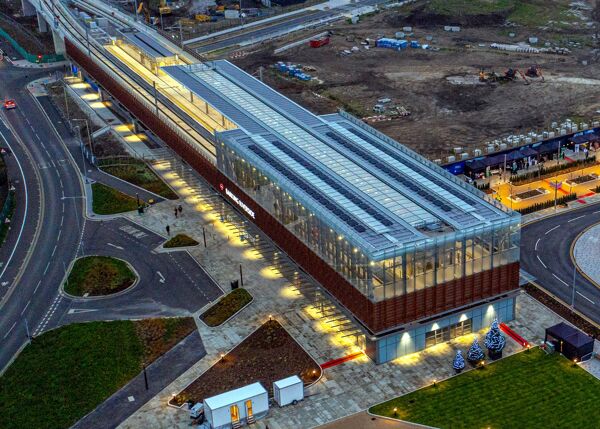
When Segment 10 of the NLEX Harbor Link opens to traffic towards the end of 2016, it will be the first construction project to have been completed in the Philippines using an NEC contract.
The pioneering PHP 10.5 billion (£158 million) project follows widespread adoption of the suite of collaborative NEC3 contracts in Hong Kong and New Zealand, and helps to consolidate NEC’s role in the large Asia-Pacific construction market.
The new 5.65km elevated dual two-lane carriageway toll road is a major segment of Phase 2 of the Manila North Expressway Project. Segment 10 runs from MacArthur Highway in Valenzuela City to C-3 Road in Caloocan City, completing an 8 km link between the North Luzon Expressway (NLEX) and Manila’s busy port area.
The project includes provision for expanding the road to dual three lanes, enabling it to carry up to 53 000 vehicles a day by 2037. It also includes toll plazas at MacArthur Highway and at the on- and off-ramps in the harbour area, as well as state-of-the-art systems for toll collection, traffic management and communications.
First NEC Contract in Philippines
The 90 km NLEX is one of the most successful public−private partnership projects between the Philippines’ Toll Regulatory Board and Manila North Tollways Corporation (MNTC), a subsidiary of the Metro Pacific Tollways Corporation (MPTC). MPTC is wholly owned subsidiary of the Metro Pacific Investments Corporation (MPIC), a leading infrastructure holding company in the Philippines.
MNTC is engaging the services of the Philippines branch of Leighton Contractors (Asia) Ltd to construct Segment 10 under an NEC3 Engineering and Construction Contract (ECC) option D (target contract with bill of quantities).
Leighton Asia, part of the Australian Leighton Group, also pioneered NEC contracts in Hong Kong - including the HK$365 million (£20 million) Hong Kong Academy, which opened on time and within budget in 2013.
Leighton started work on Segment 10 in May 2014. One of the first tasks was to set up a precast yard for manufacturing the main beams, including erection of several major gantry cranes. Bored piling started in January 2015 and works are continuing to progress on schedule.
Achieving Mutual Trust and Cooperation
Collaboration is at the heart of all NEC contracts, with the first core clause in ECC stating: "The Employer, the Contractor, the Project Manager and the Supervisor shall act as stated in this contract in a spirit of mutual trust and cooperation".
According to MNTC contract/commercial manager Renato Martinez, this proved to be a challenge to some members of the project team, many of whom are accustomed to traditional ‘adversarial’ contracts. "Veering away from the form of contract that the Philippines construction market is familiar with was not easy for some of the team members, particularly applying the principle of mutual trust and cooperation," he said.
Martinez said, "The project team is beginning to appreciate the advantages of NEC3 ECC, especially the early warning system that assists the parties in jointly mitigating identified risks", adding that, "if the Segment 10 project proves to be a success, MNTC will consider adopting NEC contracts to procure future expressway projects in the region."
BENEFITS OF NEC3
- Encourages all parties to work together collaboratively, ensuring project goals of time, quality and costs are achieved.
- Assists the parties in jointly mitigating identified risks, avoiding delays and disputes.
- Has been tried and tested internationally, with an unrivalled 25-year track record of delivering major infrastructure projects on time and to budget - including the London 2012 Olympics.



